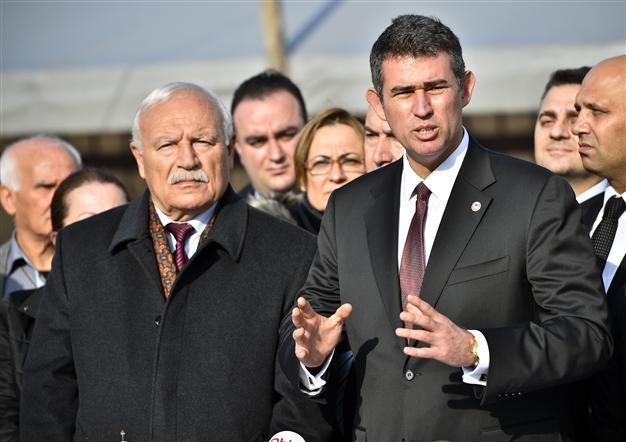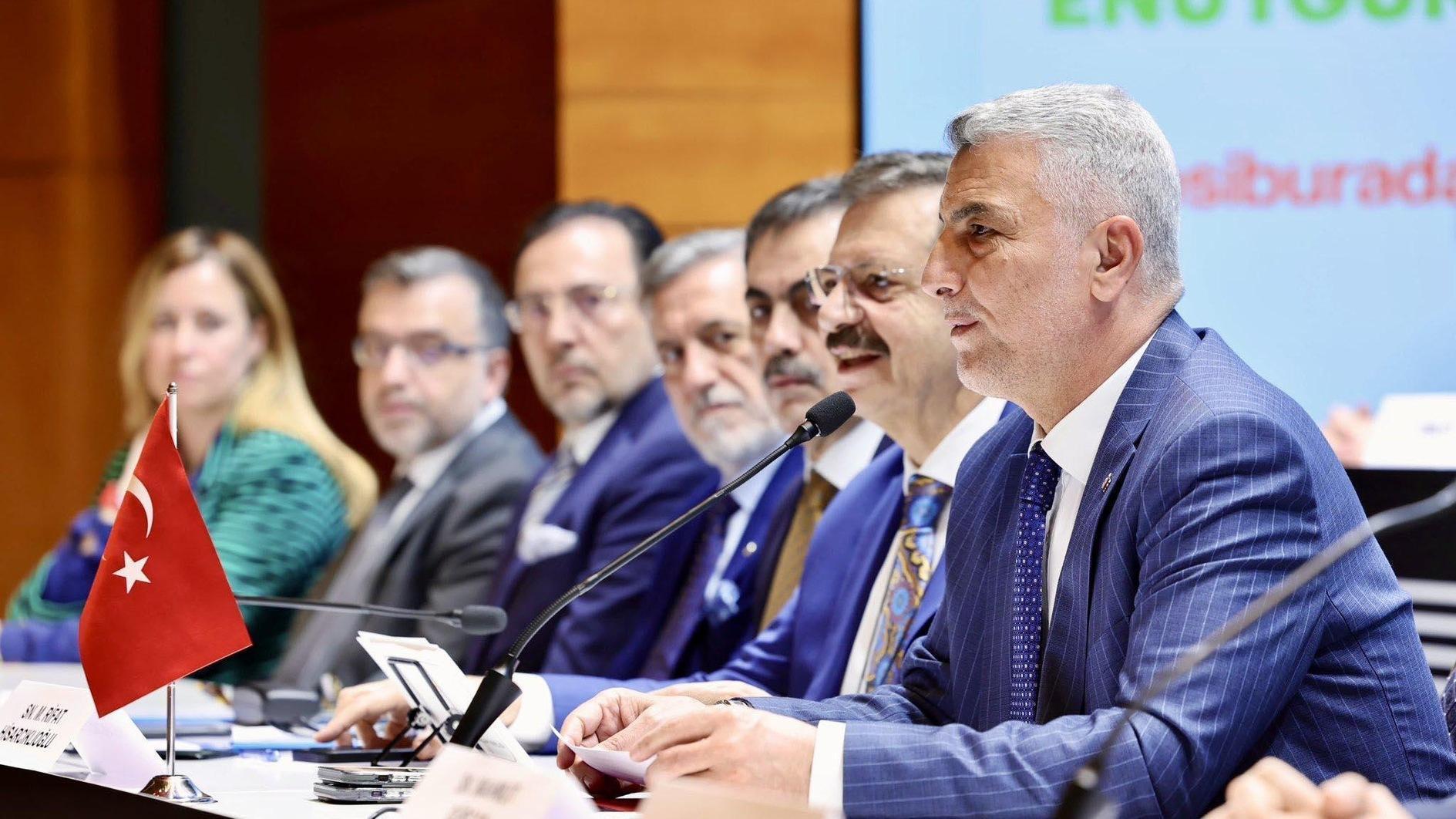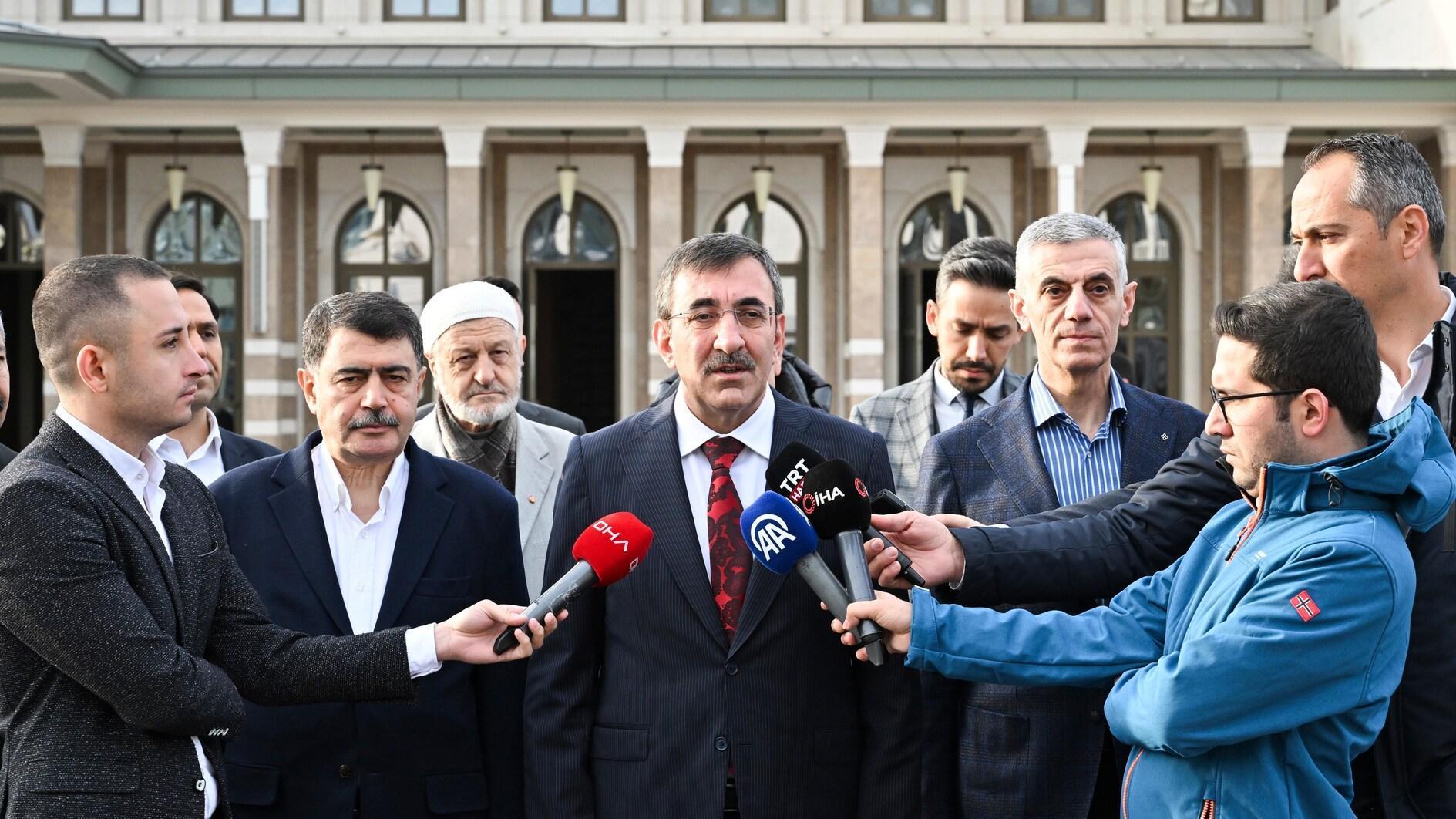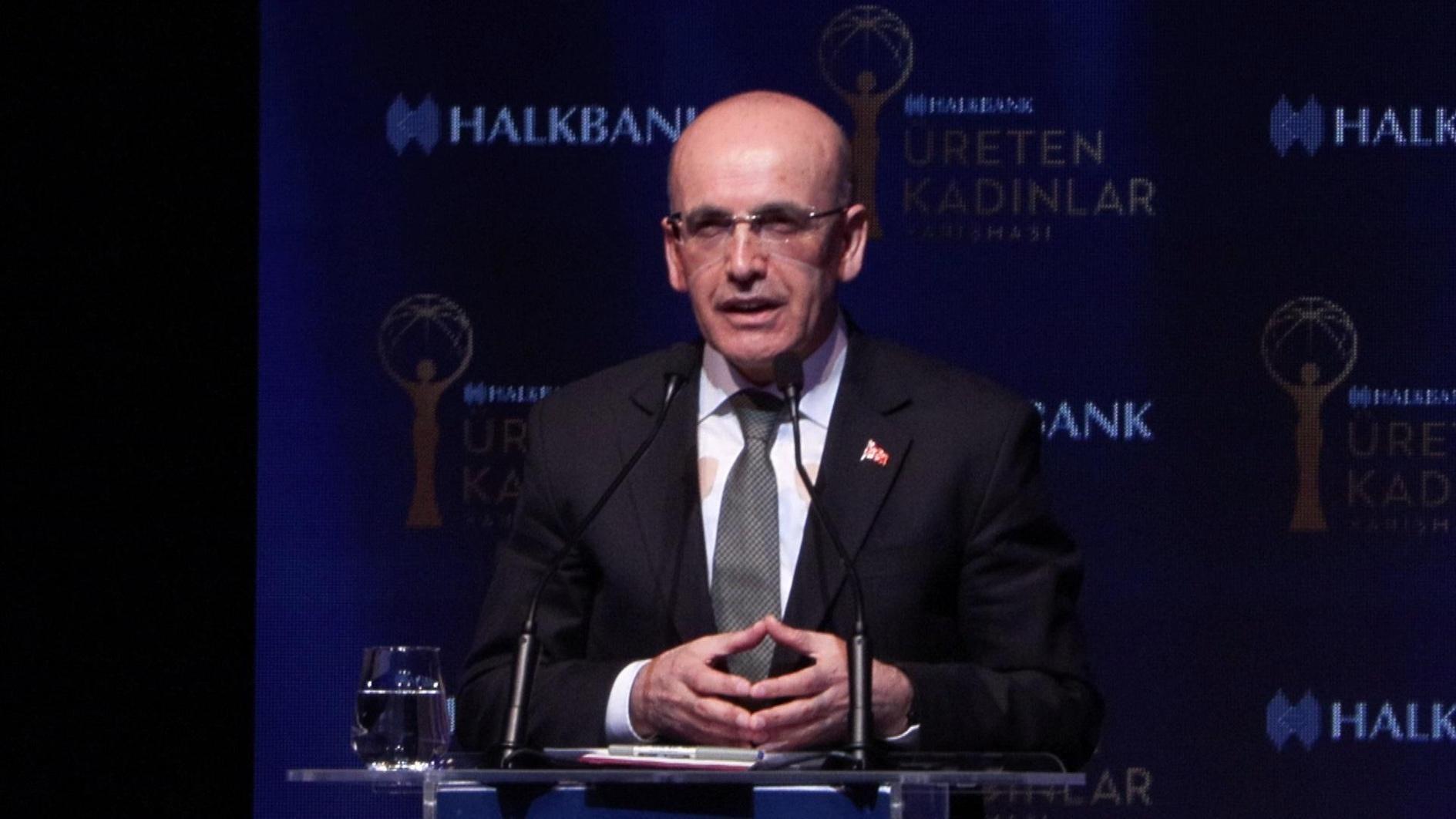Head of Turkish bars union pushes for new legal proposal over retrial of coup cases
ANKARA/ISTANBUL

‘Our approach is not limited to any case or person. The TBB’s duty is to protect rule of law,’ Metin Feyzioğlu (R) says. AA photo
A set of legal proposals floated by the head of Turkey’s bar association and heeded by Prime Minister Recep Tayyip Erdoğan’s government, which could lead to the retrial of hundreds of military officers and others who were convicted of plotting to topple the government, has offered a glimpse of hope after a period of severe political turmoil in Turkish politics.Metin Feyzioğlu, the head of the Union of Turkish Bar Associations (TBB), told reporters after a meeting with Erdoğan on Jan. 4 that they had discussed a set of legal proposals that could lead to the retrial of military officers and other people accused of plotting against the government.
As of Jan. 6, Feyzioğlu was at the Silivri Prison campus near Istanbul, where defendants in the Ergenekon coup case and convicts in the Balyoz coup case have been jailed. There, he visited former Chief of General Staff Gen. İlker Başbuğ, Workers’ Party (İP) leader Doğu Perinçek, journalist Tuncay Özkan, and retired Gen. Bilgin Balanlı, the former commander of the War Academies.
“Our approach is not limited to any case or person. The TBB’s duty is to protect rule of law and human rights,” Feyzioğlu told reporters following his visit in Silivri.
Janus-headed judiciary
“There will be no resolution as long as we have not closed down the Specially Authorized Courts [ÖYM], as long as we have not put an end to the janus-headed judiciary, as long as we have not introduced a legislative order with an absolute legal provision saying ‘You will look into these cases again,’ and as long as we are not obliged to review these [cases] by law. One more nail will be put into each conviction ruling,” said Feyzioğlu.
He added that he would hold separate meetings with Parliament Speaker Cemil Çiçek, Justice Minister Bekir Bozdağ and the leaders of political parties represented at Parliament.
The TBB staff told the Hürriyet Daily News that Feyzioğlu would meet Çiçek, main opposition Republican People’s Party (CHP) leader Kemal Kılıçdaroğlu and Nationalist Movement Party (MHP) leader Devlet Bahçeli on Jan. 9. His meeting with Justice Minister Bekir Bozdağ is expected to take place on Jan. 8, they said.
Hundreds of people have been jailed in Turkey for separate alleged plots to overthrow the Justice and Development Party (AKP) government soon after it came to power in 2002. They include the country’s former military chief and other top commanders.
The legitimacy of their convictions was recently brought into question after Erdoğan’s top political adviser suggested that those officers had been framed by groups within the police and judiciary, which the government now accuses of orchestrating a massive corruption probe targeting the prime minister’s allies. The military last week filed a legal complaint, asking prosecutors to look into the claims, as well as accusations by government officials that the corruption probe is a conspiracy by a group that has allegedly infiltrated the judiciary and police.
According to the proposal by Feyzioğlu and a group of his colleagues, cases currently being assessed by a high court of appeals would be returned to a lower court for a review, while new trials would be opened for cases that have already been finalized by the higher court. All cases would be heard by ordinary criminal courts, instead of the more controversial ÖYMs that oversee terror and security cases.
The military officers and their supporters have long complained of unfair treatment and of fabricated evidence during trials.
The government has pointed fingers at the followers of U.S.-based Islamic cleric, Fethullah Gülen, for the corruption investigation, which has ensnared the sons of three former government ministers and the head of a state-owned bank. Gülen, who is based in Pennsylvania and commands a global empire of business, media and education interests, has denied any involvement in the investigation.
The convicts and detainees that he met in prison approached the idea positively, Feyzioğlu said. “They repeatedly gave us the message saying ‘Let the bribery and corruption probe continue until the end. But beware that people should not forget us here or attempt to barter because a corruption investigation is going on,’” he added.
















